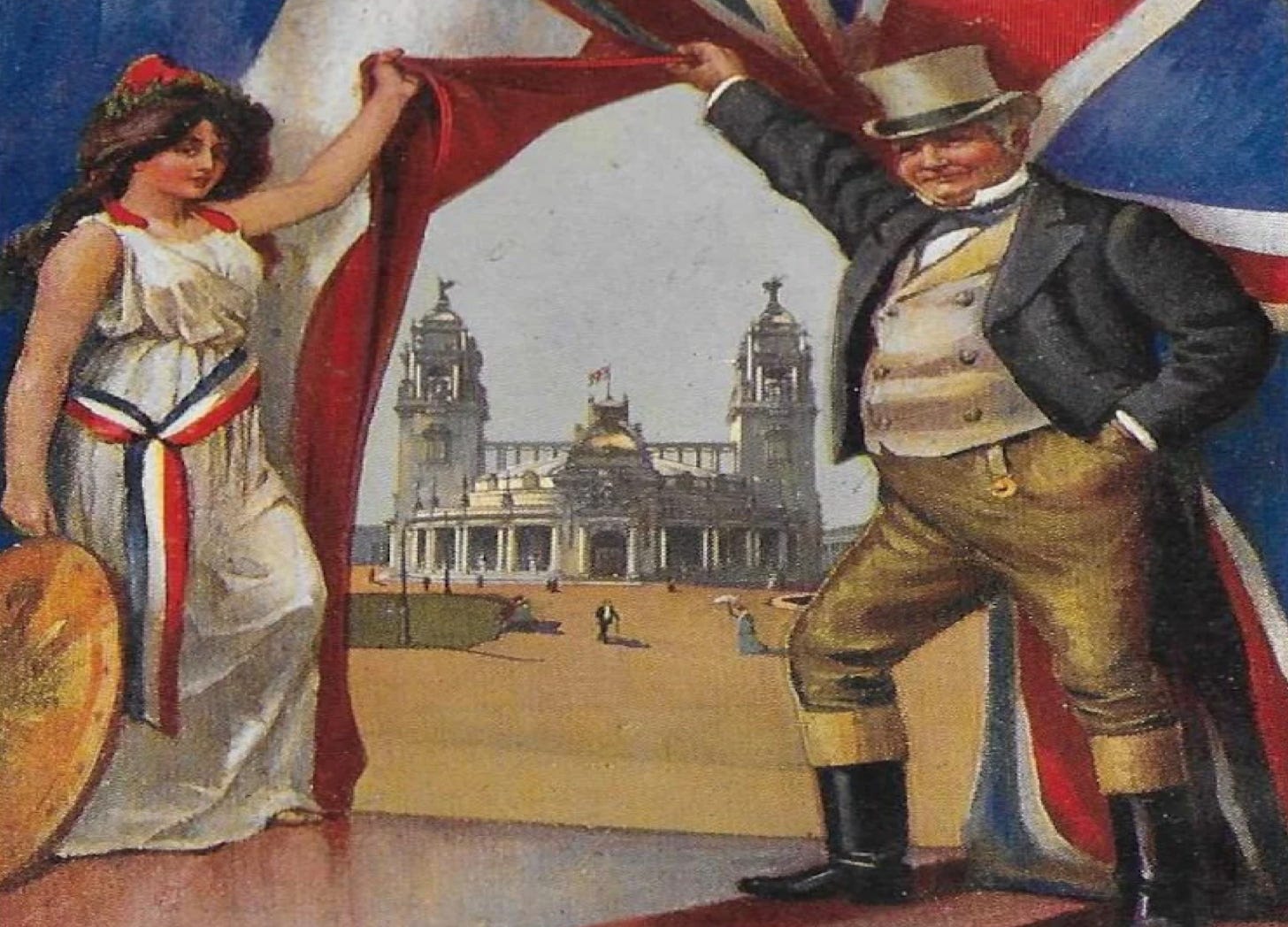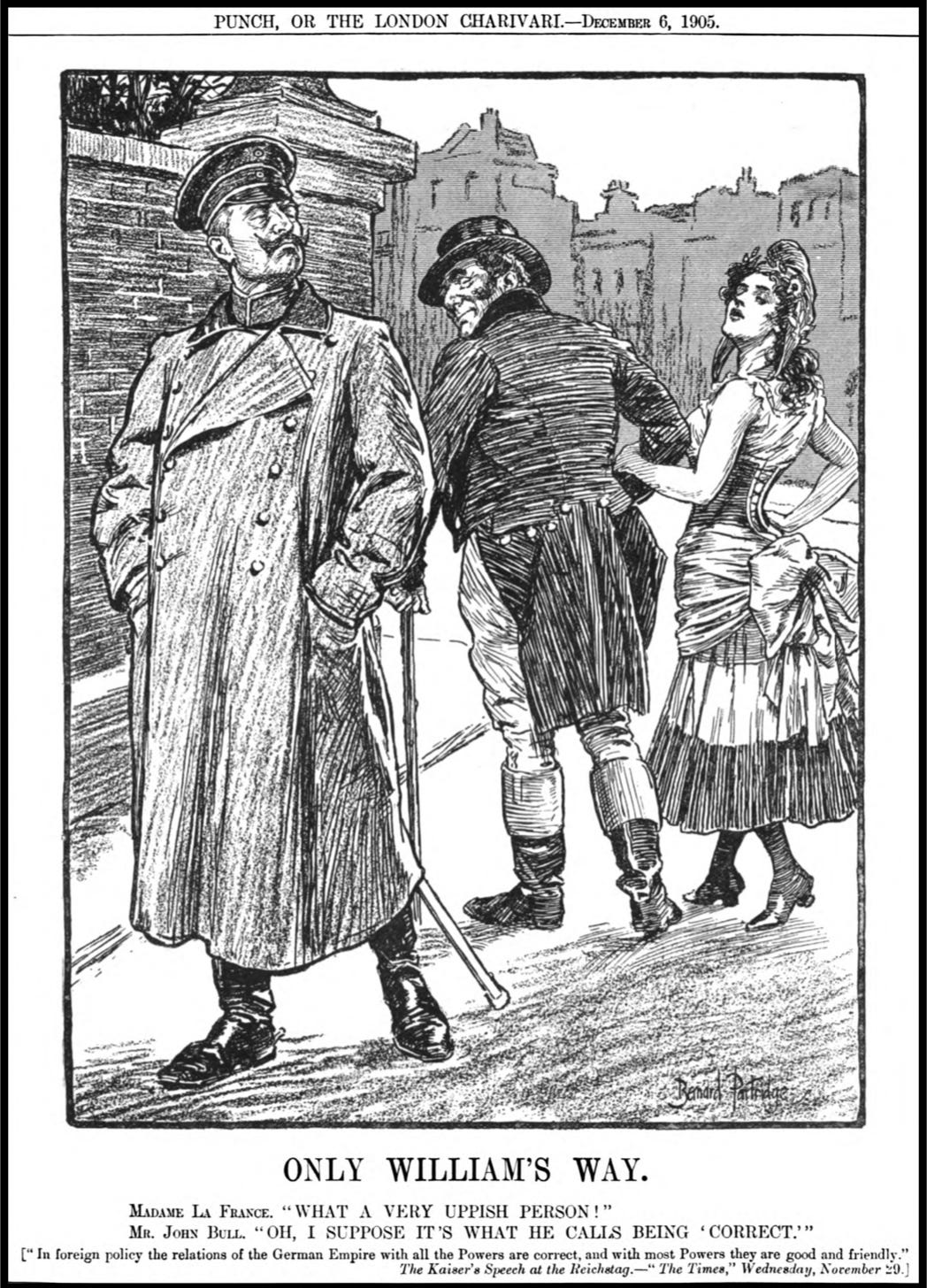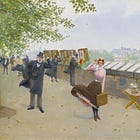In 1904, the French Republic and the United Kingdom signed a series of agreements that quickly became known as the Entente Cordiale. Translated as “cordial understanding,” this moniker reminded all concerned that, while the parties had yet to enter into a formal alliance, both “understood” that this “understanding” signaled the start of a beautiful friendship.
This outbreak of cross-Channel bonhomie took place in an age of allegorical kitsch. Thus, walls were soon covered in posters, and shops filled with bric-à-brac, featuring Marianne, the personification of Republican France, cooperating with a fictional figure who symbolized Britain. (The latter might be Britannia or John Bull.)
Some British artists draped Marianne in solemn classical gowns of the sort worn by the invariably decorous Britannia. Others, however, could not resist the temptation dress the avatar of the land of “ooh la la” in costumes likely to lead Edwardian folk to think of something other than England.
The most famous picture of the latter sort is a cartoon that depicted Marianne, on the arm of John Bull, sporting both the risqué costume of a fille de joie and a look of obvious disdain. (The latter was clearly aimed at the third figure in the character of the piece, who could have been none other than Wilhelm II, Emperor of Germany.)
In drawing this scene, Bernard Partridge set up a double entendre. That is, he created a “double understanding” with two interpretations: one plain and another somewhat spicy. However, where the naughty aspect of a classic double entendre usually brings up the rear of the family-friendly facets, the Partridge starts with a suggestive suggestion before making his point about international relations. (Indeed, the garb of Marianne so closely follows the trollopesque tropes of the time that I am surprised that the cartoon passed muster with the editors at Punch.)
Entente and entendre both derive from the verb entendre, which means “to hear” or “to understand.” However, where the noun entendre refers to the act of hearing or understanding, entente describes the product of that action. Thus, before there could have been an Entente Cordiale, both British and French diplomats would have had to entendre what their counterparts were saying.
For Further Reading:







But they are Trollops
Not that’s a bad thing.
If Kaiser Wilhelm II had been smart, or just prudent, (versus dumb, envious of France and biased against the UK) perhaps Europe would have a different history.